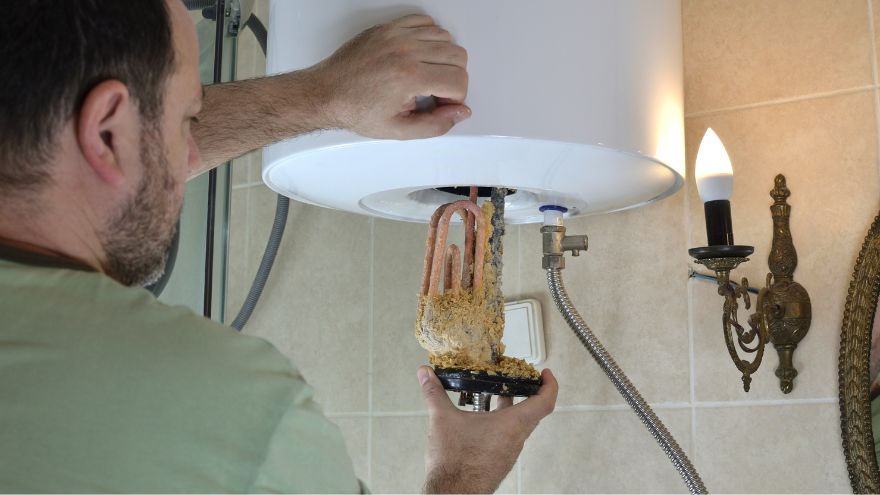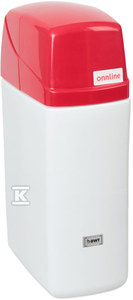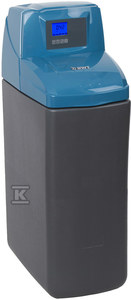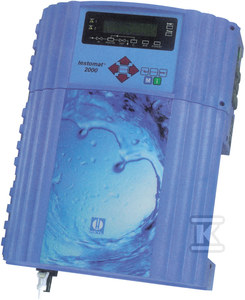The presence of hard water can have a number of negative effects on heating systems, both in terms of their optimal operation and long-term efficiency. Find out why scale is deposited and how to remove it. Find out what to do to maintain the proper pH range and what they are water softening methods. In the context of ensuring maximum energy efficiency and minimizing the risk of failure, we present a selection of specialized tools available by Onninen, dedicated to heating system professionals.

Check out hydraulic nipples at the Onninen wholesaler
What effect does hard water have on the heating system?
 Hard water is water that contains a lot of calcium and magnesium ions . This composition poses a significant threat to any heating system. Its presence in the installation not only increases the risk of scaling , but also affects the efficiency of boilers and radiators . If the water is hard, it may lead to faster wear of fitting elements, increasing the risk of failure and the need for costly repairs.
Hard water is water that contains a lot of calcium and magnesium ions . This composition poses a significant threat to any heating system. Its presence in the installation not only increases the risk of scaling , but also affects the efficiency of boilers and radiators . If the water is hard, it may lead to faster wear of fitting elements, increasing the risk of failure and the need for costly repairs.
The fact that high-hardness water flows through heating elements, such as boilers or radiators , simply causes scale to be deposited. This sediment, i.e. the so-called scale , acts as an insulator and significantly reduces the thermal efficiency of the device. Additionally, the device consumes more energy to reach the desired temperature, and therefore generates higher costs for the user and a greater burden on the environment.
If the heating device is exposed to long-term operation in conditions of high water hardness without appropriate countermeasures, such as water softening , it may result in increased operating costs or even shortening the life of the entire heating system. In such a situation, pipes , collectors and radiators may become blocked or damaged due to the accumulation of these deposits . Hard water also has a significant impact on the corrosion process.
What pH should be in the heating boiler?
 Optimum pH of water in the heating boiler , ranging from 7-8.5 . Monitoring these parameters is essential if we want to prevent corrosion or scale.
Optimum pH of water in the heating boiler , ranging from 7-8.5 . Monitoring these parameters is essential if we want to prevent corrosion or scale.
Water with a pH lower than 7 is acidic and, as mentioned, can accelerate corrosion of metal parts of the boiler and pipes . On the other hand, water with a too high pH, above 8.5, may lead to alkaline corrosion. Therefore, any departure from the norm has negative effects - it shortens the life of the system and increases the risk of failure.
On the other hand water with optimal pH reduces the risk of scale formation. Scale is formed by the precipitation of calcium and magnesium ions . This reduces the thermal efficiency of the boiler and thus leads to its damage.
Correct measurement of water hardness with an indicator?
To accurately monitor hardness in water used for heat in home heating systems, it is necessary to understand how to properly measure this parameter. The water hardness indicator is a tool that allows you to quickly and accurately assess the level of minerals responsible for the formation of deposits in the heating system. Below are the steps that will help you use the indicator correctly:
- Turn on the indicator in accordance with the manufacturer's instructions to ensure its proper operation. This is important to obtain reliable results.
- Collect a sample by running water through the system and collecting it for testing. For heating systems, a good location is usually the piping near the boiler.
- Use an indicator to measure water hardness. Follow test application recommendations to avoid measurement errors.
- Monitor your results regularly to notice any changes in your water . Corrosion and the formation of deposits in pipes and piping components can affect the efficiency of the heating system.
- If the measurement shows that you have hard water , consider taking appropriate measures, such as water softening products, to ensure that your installation is not damaged.
Indicators at the Onninen wholesaler
An indicator is a device or substance used to detect, measure, indicate, or signal the presence or level of specific conditions, chemicals, or physical changes. In the context of water treatment, the indicator can be used to monitor parameters such as water hardness, pH, the presence of specific ions or contaminants. The Onninen wholesaler offers advanced tools and devices that enable precise monitoring and regulation of water hardness. These solutions are essential to ensure the efficiency and longevity of heating systems:
-
 BWT Testomat 2000PL water hardness indicator – it is an automatic water hardness tester. Thanks to it, we can constantly monitor and correct the water softening process. Thanks to this, we can prevent the formation of scale in the boiler. This device is also helpful because it increases energy efficiency.
BWT Testomat 2000PL water hardness indicator – it is an automatic water hardness tester. Thanks to it, we can constantly monitor and correct the water softening process. Thanks to this, we can prevent the formation of scale in the boiler. This device is also helpful because it increases energy efficiency. - Onnline water softener with electronic volume control - this device is designed to reduce water hardness through ion exchange. In this way, it effectively prevents the formation of scale. This device is very easy to use.
- BWT AQUADIAL water softener for boiler rooms – a very advanced water treatment device. It was created to protect the boiler room against the negative effects of water hardness. The BWT AQUADIAL 20 softener effectively reduces water hardness, preventing scale and corrosion. By using it, we are basically sure that the high energy efficiency and longevity of the heating systems will be maintained. This device is essential in every modern boiler room.
To extend the life of heating devices, water hardness should be regularly monitored. With advanced tools and products from Onninen providing the necessary support for specialists, it is much easier.